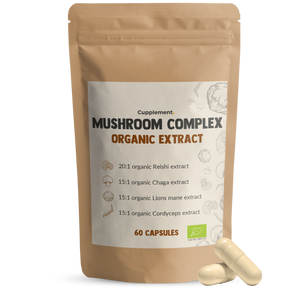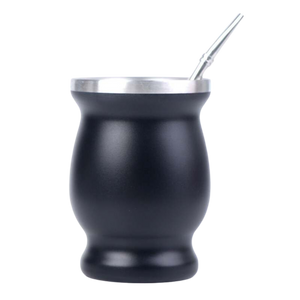
The effect of coffee on your brain, all about caffeine and dopamine
Coffee is a product that has been drunk for hundreds of years, mainly because of the caffeine that you can find in the coffee which gives a stimulating effect. In nature, caffeine is a substance that can defend the plant against certain diseases and parasites. The attackers of the coffee plant are paralyzed in this way. Fortunately, the caffeine in drinking a cup of coffee has a different effect on humans. Caffeine also has a positive influence on the dopamine levels in the brain. We are curious about the science behind caffeine, and its effect on dopamine in our body. Sit back with a cup of coffee, and learn more about this topic in this blog.
What is caffeine
Caffeine is a substance that is known by many people. It is a stimulant which you can find in for example coffee beans, and in lower concentrations also in tea. The caffeine is released by making coffee, for example. Before caffeine is absorbed into the body, via the stomach, it can take about 45 minutes for it to be fully absorbed. Caffeine levels in the blood peak after about 30-60 minutes. Drinking coffee with caffeine stimulates the body and the brain. The brain is activated more, and you get more energy.
What is dopamine
Dopamine is a body's own substance that ensures that nerve cells can communicate with each other in the brain. A messenger from the brain, therefore, called neurotransmitter. Dopamine has to do with pleasure, attention, mood, motivation. All of these effects are associated with the brain's reward system. The effects of dopamine are often associated by scientists with your motivation.< /a> So a healthy production of this neurotransmitter makes it easier to achieve certain goals. Preference is given to things that bring about a direct reward for the brain. Dopamine also reduces stress. To increase your dopamine level in a natural way, you can also ensure sufficient exercise, have a good night's sleep or have sex. There are also supplements on the market and foods that you can increase dopamine levels.
How does caffeine affect dopamine
Caffeine has an indirect effect on dopamine. As discussed above, caffeine has a stimulating effect on certain body functions. It works on the brain, stimulating the effect of the stress hormone adrenaline. The hormone adrenaline, in turn, stimulates the release of dopamine in the brain. The effect of dopamine ultimately makes you feel happy. So now you know that a cup of coffee provides more than just some energy! A bowl full of happiness.
Too much or nog enough caffeine
No or low concentration of caffeine is not a problem, it is not a substance from the body itself. However, too much caffeine is possible. The European Food Safety Authority (EFSA) has set a healthy limit of 400 mg of caffeine per day. An average cup of coffee contains between 75-100 mg of caffeine, so a healthy day totals down to an average of 4 to 5 cups per day. Fortunately, getting a caffeine overdose is almost impossible, because you would have to ingest 15 grams of caffeine, which equates to 150 cups of coffee. Too much caffeine can make you restless, anxious or dizzy. You may also suffer from palpitations. Therefore make sure that you stay under 5 coffee per day.
Too much or not enough dopamine
Dopamine is produced in the body by the amino acid tyrosine. By eating certain brain food, you can stimulate the production of dopamine in the brain. It is therefore advisable to exercise a lot and eat well for high dopamine levels. When You Have a Deficiency of Dopamine in Your Brain
Popular products
-
Cupplement Frother

Handy frother for mixing additives to your coffee.
Order now -
Lions Mane

Lions Mane is known to help improve your concentration.*
Order now -
Matcha

Energy
Immunity
Matcha is een fijngemalen groene thee poeder dat traditioneel wordt gebruikt in de Japanse theeceremonie.
Order now -
Pill box

Introducing our sleek and convenient Pill Organizer – the perfect solution to streamline your supplement routine!
Order now -
Mushroom complex capsules

Discover the ultimate support for your overall well-being with our Organic Mushroom Complex in convenient capsules! Now with more active ingredients.
Order now -
Gourd set with bombilla

Handy frother for mixing additives into your coffee.
Order now



















